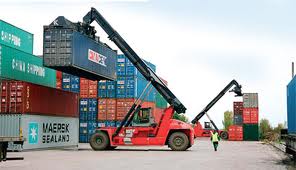Introduction:
Companies are increasingly being asked to stow or secure cargo but this is dangerous work that should only be done by trained and experienced Dockers. Dockers are still being taken to start unlashing containers before entering port, with the purpose of speeding up port operations, which is real serious.
Review the cargo system with an international perspective, focusing on the business, operations and regulatory fundamentals. Course provides the opportunity to learn from industry experts working at top Airlines and Freight Forwarders.
They help you enhance your skills and knowledge in a wide range of relevant topics, such as: regulations, safety, strategic management, finance and special freight.
This class is designed for Operations people of Airlines, Cargo agents, Logistics departments of companies, cargo industry aspirants. This extends the length and breadth of cargo handling.
Importance:
- Avoid strategic and tactical errors through knowledge of the cargo industry.
- Cut your operating costs and maintain optimal levels of client service
- Performing research and training in the industry and deriving benefits from it.
- Identify shippers’ changing needs and conform your business for immediate answers
- With exceptional management tools one can improve your competitive performance.
Scope:
It is the desire for a successful career that brings out the best in every person. It is forever the level headed and straight thinking people who accomplish what they train for. All they need may be is the right advice or a break at the start of their vocation.
Selecting the right vocation can be a intimidating undertaking. Particularly, when you are in college or just out of college. Most of us must be facing the dilemma of whether take up a job after the works or obtain professional training. There is a recognizable fact that “Good training today holds the key to future success”.
The most upcoming industries today are the Aviation, Tourism and Hospitality under Cargo sectors.
The form will take the following aspects:
- Industry Regulations
- ICAO / IATA / FIATA
- History of various organization
- The Air Cargo Agency
- IATA cargo agent
- Services
- The consolidator
- Operational and documentation handling
- World Geography
- IATA 3 letters codes
- Time difference
- Calculation of transportation time
- Use of Manuals
- The OAG Air cargo tariff (TACT)
- Aircraft
- Aircraft characteristics
- Bulk loading limitations
- Unit load
- Device
- Handling Facilities
- Aircraft handling facilities
- Cargo terminal facilities
- Air Cargo Acceptance
- Instruction for carriage
- Adoption of special freight
- Carrier regulation
- Wet cargo needing special treatment
- Cargo Booking Procedure
- How to make a cargo booking
- Airline booking procedure
- Air Cargo Rates and Charges
- The air cargo tariff
- IATA areas and sub areas
- Chargeable weight
- Currency rates and charges
- Basic rules of cargo rates and its charges
- Minimum charges
- Valuation charges
- Disbursement
- Other charges
- The Airway Bill
- Function and completion airway bill.
- Cargo Agent
- Billing & credit system/ payment to airlines.
Click here for government certification in Logistics & Supply Chain Management





20 Comments. Leave new
Good work
Apt information! Well done!
unparalleled work!
Nice.
Well done!
Good work. Nice article.
Good effort..!
Nice one…
good job
very nicely done!
Keep up the good work 🙂
Thank you guys.. 🙂
Great efforts 🙂
Very well written
Very Well Wriiten 😀
Great work!!!
Well Researched one 😀
well i didnt know that Cargo Handing is such a big field 😀
GOod work 😀
Cargo handling is certainly very important and India must work on improving its cargo handling if it intends to become a transshipment hub.
good one
informative..good job